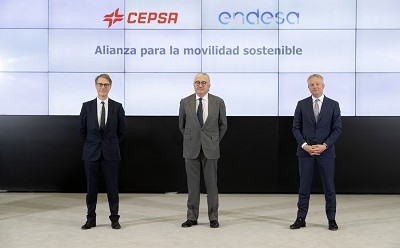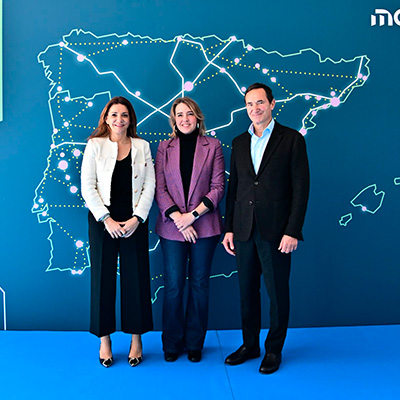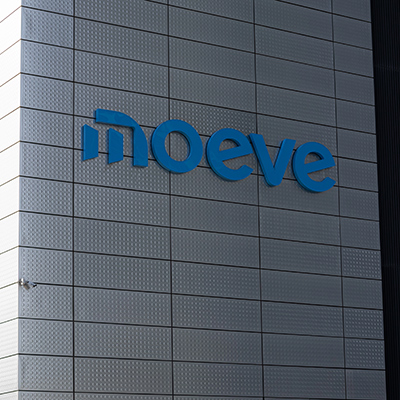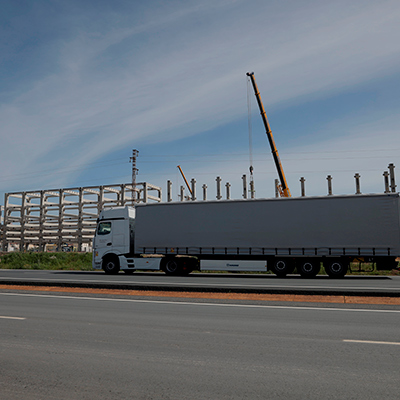- The agreement represents a giant step forward in both companies’ goal to drive the energy transition and decarbonize the transportation sector
- The pioneering partnership between two energy players will make it possible for electric vehicle customers in Spain and Portugal to use each company’s respective digital platforms (apps) to access both Endesa X’s growing public charging network and the new ultra-fast recharging network that Cepsa will deploy starting next year
Cepsa and Endesa have signed a pioneering partnership that will help accelerate the energy transition in Spain and Portugal, promoting the decarbonization of transport and fostering sustainable mobility. Philippe Boisseau, CEO of Cepsa, and José Bogas, CEO of Endesa, closed the agreement today, together with Maarten Wetselaar, who is set to be the new CEO of Cepsa on January 1, 2022.
Cepsa and Endesa X, Endesa’s electric mobility business division, will together offer a distinctive proposal in the Spanish and Portuguese electric mobility market thanks to their existing wide customer base. Both companies are set to work together to develop what will be the largest on-the-go ultra-fast recharging network in Spain and Portugal. This new ultra-fast recharging network to be deployed by Cepsa (150 kW points located on all corridors and main roads), will join Endesa X’s existing infrastructure, which to date includes 75 ultra-fast recharging points in 25 locations across Spain. This capability will allow users to recharge 80% of their electric vehicles’ battery in approximately 10 minutes.
Cepsa and Endesa customers will be able to use both companies’ public chargers through their respective digital platforms (apps). In other words, they will be fully interoperable recharging networks which customers can access through both the Cepsa app and the Endesa X app (JuicePass). This means Cepsa’s customers will be able to enjoy, through their own mobile app, the nearly 2,800 recharging points that Endesa X has already deployed across cities and motorways, as well as in rural areas to equip Spain with all charging technologies (ultra-fast, fast and semi-fast).
Additional e-Mobility services
In addition, both companies will actively collaborate in the development of a commercial proposal for electric mobility in all areas so that anyone opting for e-Mobility will have a comprehensive solution that meets their charging needs at their disposal, both in the area of public access and in the area of linked charging.
During the signing ceremony of the agreement, Philippe Boisseau, CEO of Cepsa, said: “This partnership is a significant step not only for both companies, but also an important milestone for the energy transition in Spain and Portugal. For the first time, efforts are being joined in a decisive and cross-cutting manner to make possible the decarbonization of transport in-line with the 2030 Agenda and the Sustainable Development Goals. It is an honor to be able to do this with a company like Endesa.”
José Bogas, CEO of Endesa, said: “Collaborations between companies are essential to accelerate projects and be more useful to society. This is the essence of the agreement we have just signed with Cepsa. A joint project that is at the forefront of e-Mobility solutions and helps curb the effects of climate change. Endesa has a well-marked path towards climate neutrality, and we are pleased that Cepsa has chosen us as a partner in this project.”
Pierre-Yves Sachet, commercial director of Cepsa, said: “Thanks to this pioneering agreement, we will be able to service our customers’ new mobility needs. With the development of our ultra-fast charging network and the ease of access to Endesa X’s public network, we will provide a complete and distinctive experience to electric vehicle customers, which will cover all their charging needs both at their usual destinations and on long-distance trips.”
Davide Ciciliato, CEO of Endesa X added: “Endesa X’s top objective has always been to link electric vehicle recharging where the customer wants and needs to charge. And that has been the maxim in our deployment over the last three years. With innovation, the necessary technology and the team’s experience, we have developed solutions that meet all the user’s needs, from home recharging to public recharging, which today has been strengthened thanks to this partnership. And last but not least, digital technology that makes the transition to electric mobility simple and natural.”
Committed to the energy transition
Cepsa and Endesa are committed to the energy transition to accelerate decarbonization in transportation and the promotion of sustainable mobility. This partnership makes a decisive contribution to the Sustainable Development Goals, specifically SDG 7 (affordable and clean energy) and SDG 13 (climate action), within the framework of the 2030 Agenda and the fight against climate change.
Cepsa is working on a transformative plan to green all its businesses and become a benchmark in the energy transition, where renewable energies and sustainable mobility solutions will play a leading role. The company provides multi-energy solutions and other complementary services across it network of service stations in Spain and Portugal, strategically located both in urban areas and along the main corridors and motorways. In addition, all Cepsa stations will be equipped with solar panels by 2023, becoming the first complete network of service stations to generate renewable energy in Europe.
Endesa, for its part, is working to make reality a new energy model based on clean energies, allowing it to offer a better service and care for our planet. In the latest update of its strategic plan, the company announced its goal to be a 100% renewable company by 2040, a decade earlier than previously expected, aligning itself with the goal announced by its parent company Enel. Bringing forward its goal to 2040 from 2050 to become a totally emission-free company is supported by a strong renewable project portfolio of 80 gigawatts. Endesa is set to accompany the achievement of this key milestone with a firm commitment to the electrification of consumption, earning the loyalty of its customers by generating value for both them and the company.




